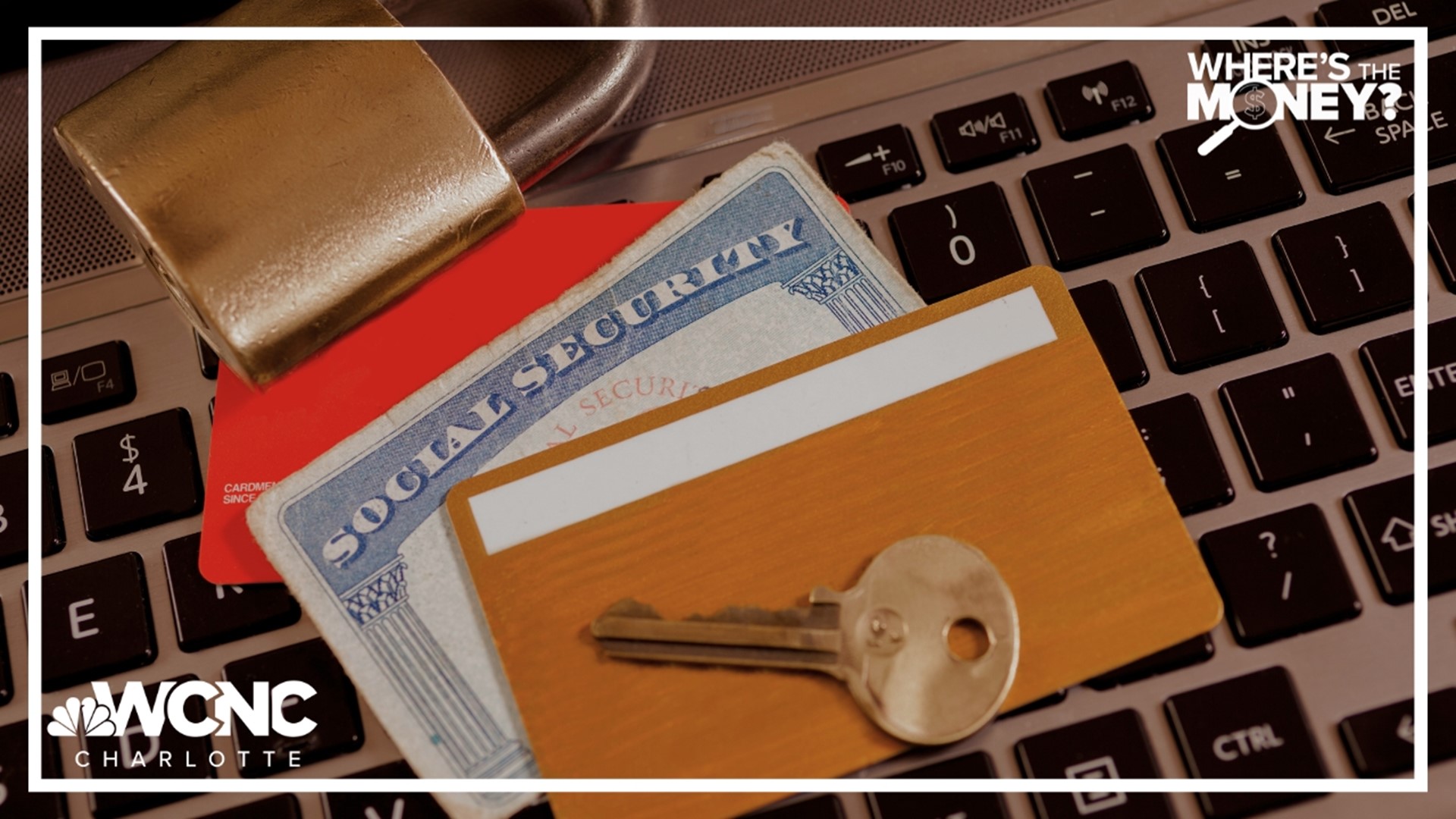CHARLOTTE, N.C. — It’s no surprise that identity theft has been increasing over the last decade. And when someone steals your identity and applies for credit cards and loans in your name, it can be very difficult to convince creditors that it wasn’t you.
WCNC Charlotte is sharing some tips to reduce the risk of identity theft so that you’re not left asking, "Where's the money?"
Personal finance news site ConsumerAffairs reports that the Federal Trade Commission counted 560,000 identity theft complaints in the first half of last year. The FTC is still working on the complete tally for 2023.
WCNC Charlotte is always asking "where's the money?" If you need help, reach out to WCNC Charlotte by emailing money@wcnc.com.
You don't have to wait and hope you won't become a victim. ConsumerAffairs issued the following tips that can protect you and your family from online scammers.
Freeze your credit: ConsumerAffairs says an identity thief does the most damage when they get access to your credit. But when you freeze your credit, a thief can’t take out a loan in your name because they cannot get access to your credit reports. Experts say it’s not foolproof, but it’s close.
Guard your Social Security number: Your Social Security number is the most valuable piece of personal data a thief can get their hands on. ConsumerAffairs says you should never carry it in your wallet, and if your Social Security number is part of your health plan identification number, ask the insurance company for a new one. You don't want your Social Security number on any card that's in your wallet.
Be careful about what you reveal on social media: ConsumerAffairs says identity thieves spend a lot of time trolling social media sites because users tend to reveal way too much information. So those challenges asking you to reveal your name, age, gender, education, hometown and other personal details could actually be tricks for criminals to get your personal info delivered on a silver platter.
WCNC Charlotte's Where's The Money series is all about leveling the playing field in the Carolinas by helping others and breaking down barriers. WCNC Charlotte doesn't want our viewers to be taken advantage of, so we’re here to help. Watch previous stories where we ask the question “Where’s the Money” in the YouTube playlist below and subscribe to get updated when new videos are uploaded.

